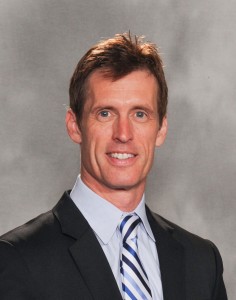
Ask yourself this question: “Have I ever been surprised by someone‘s race, ethnicity, faith, or sexual orientation?”
Explore This Issue
ACEP Now: Vol 35 – No 06 – June 2016If the answer is yes, and I suspect we all wouId answer yes, this should expose the fact that we probably all have some internal biases. It’s not wrong; it’s reality. What we do with those biases, a choice, is the standard by which we should all be judged. Recognizing our own internal biases allows us to build the necessary barriers between the subconscious and the conscious so that those biases, whatever their origin, do not define our actions, and ultimately, how we treat others. I believe this is a part of personal growth, and we owe this to each other, our patients, and ourselves.
Ignorance is no longer an excuse and silence is no longer acceptable. We collectively own this issue.
I know life and society are too complex to expect everyone to just get along. In fact, you can dislike as many and whomever you choose, but I challenge you to make certain you have a justifiable and rational reason for doing so.
I‘m not a social activist. I‘m a sensitive realist. How can I accept inequality for others and remain silent if I wouId not tolerate inequality and insensitivity toward my family or me?
Recognizing our tendency toward bias is the first step. Make a conscious decision to control those biases and not let them define you. There are many faces of emergency medicine, embracing our diversity makes us all stronger, while closing our minds limits our personal and collective growth as a specialty.
ACEP Hosts Diversity Summit, Makes Case for Change
With an eye to the future of emergency medicine, ACEP hosted a Diversity and Inclusion Summit in April to promote and facilitate diversity and inclusion and cultural sensitivity within the 35,000-member organization.
Led by President-Elect Rebecca B. Parker, MD, FACEP, the daylong Summit included more than two dozen ACEP members and staff who represent a variety of communities (age, gender, religion, race/color, and LGBT). These participants also brought special knowledge, research, publication, or leadership in diversity and within EM.
Women comprise more than half the population and minority groups comprise roughly 38% of the U.S. population today. Most of the largest American cities and some of the largest and fastest growing states have populations in which minorities are collectively the majority or will be in the near future. By contrast, the leadership of organized medicine and the EM workforce falls well below these averages—a fact that ACEP is working to change.
Pages: 1 2 3 4 | Single Page





One Response to “ACEP Diversity Summit Promotes Cultural Sensitivity, Acceptance Among Members”
June 22, 2016
Mark Rabold, MDI just finished 30 years as an ER Doc and have always said “Thank God that the ER is the last bastion against the lunacy and stupidity of political correctness”. I was deeply saddened to see that this is no longer true. We used to be the no BS specialty and just did what needed to be done without bowing to political whims. It is sad that Dr. Klauer is now a true believer and thinks we should be too. It appears that I retired just in time. Best of luck folks! You are gonna need it.